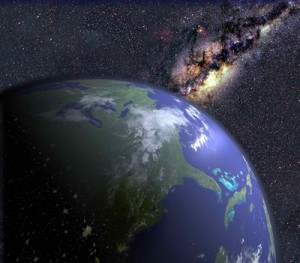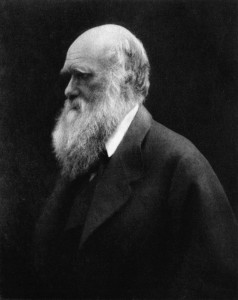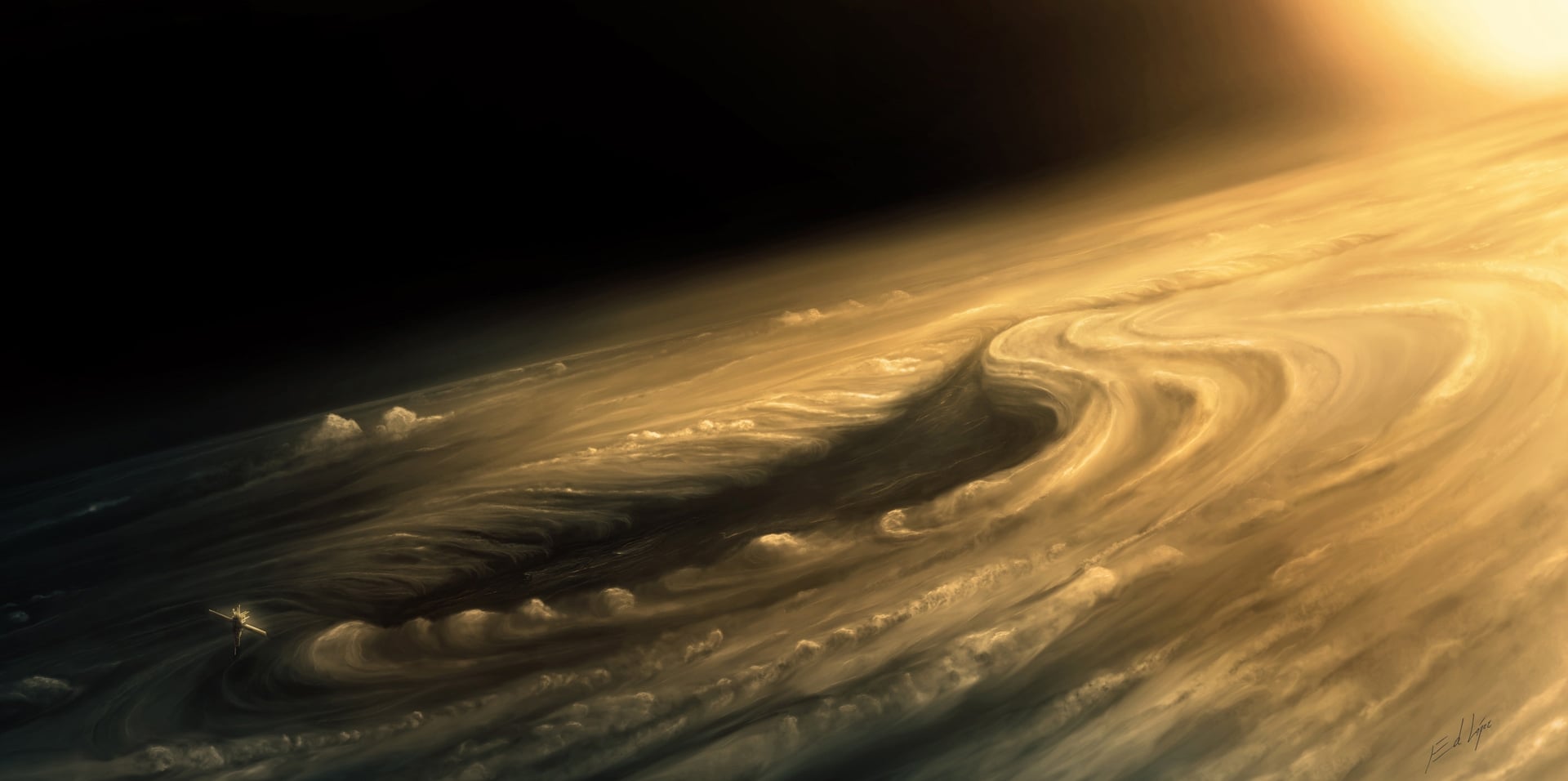Science cannot function and advance without two premises, both of which are essential to the scientific enterprise, but adverse to life and right living: dualism and reductionism. The ultimate example of both is the division between matter and life in the universe.
 Could energy and matter be imbued with properties that allow life to flow from the universe like the headwaters of a river? Yes, they could.
Could energy and matter be imbued with properties that allow life to flow from the universe like the headwaters of a river? Yes, they could.
Biologists and astrobiologists are fond of saying things like: “In spite of intensive research, scientists are still very much in the dark about the mechanism that transformed a nonliving chemical soup into a living cell.”
On one hand, we’re told, “you couldn’t be a scientist if you thought the universe was a meaningless jumble of odds and ends haphazardly juxtaposed.” On the other hand, scientists expect us to believe that life, and the universe itself, arose solely from random activity, completely by chance.
The division between matter and life is completely in our human heads. I think we’ll soon learn that the universe inexorably gives rise to life just as it inexorably gives rise to galaxies and stars.
Charles Darwin provided a mechanism that explains how the diversity of life evolved over billions of years. But when asked about how life got started, he ducked the question, saying, “One might as well speculate about the origin of matter.”
Well, not quite. How life began, on this planet and presumably others, is a question far more scientifically, philosophically and spiritually pressing than how the universe began.
Is biology a seamless product of cosmic evolution, or a special case, a freak occurrence, “one in a trillion trillion habitable (that is, earthlike) planets?” If life is based on the same ingredients found on earth (liquid water, carbon and DNA), and emerges wherever minimal conditions permit it to exist, then it’s a different ballgame altogether.
The core issue is whether we live in a mathematical universe of probabilities and chance occurrences, or whether we live in a rich-in-life and friendly-to- consciousness universe.
The mathematical mindset requires no spiritual dimension, and actively eschews one. It’s why so many scientists and fellow traveler rationalists are dyed-in-the-wool atheists.
But if the universe is teeming with life, then the question of consciousness, which is essentially the question of awareness, will be thrust into the fore, much to the chagrin of atheists and rationalists.
will be thrust into the fore, much to the chagrin of atheists and rationalists.
Charles Darwin’s own views on faith would make any strict, chance-devoted evolutionist blanche: “A man who has no assured and ever present belief in the existence of a personal God or of a future existence with retribution and reward, can have for his rule of life, as far as I can see, only to follow those impulses and instincts which are the strongest or which seem to him the best ones. A dog acts in this manner, but he does so blindly.”
Holy natural selection, modern day evangelicals have a spokesman in their nemesis himself, Charles Darwin! What are we to make of such sentiments?
Not too much actually. The “personal God” notion is and always has been a non-starter, however much false comfort it has given people through the ages. If there is anything we can call ‘God,’ it pertains to the whole, not to egocentric activity. Indeed, egocentric activity precludes wholeness, and absolute egocentric activity (aka narcissism) precludes it absolutely.
We shouldn’t be surprised at Darwin’s contradictions. Only philosophers have low thresholds for contradiction. Scientists and most people can live with them quite comfortably, and Darwin was no exception. Out of one side of his being, he can say, “Nothing is more remarkable than the spread of scepticism or rationalism during the latter half of my life.”
Out of the other side he can just as comfortably utter: “I feel no remorse from having committed any great sin in devoting my life to science, but have often and often regretted that I have not done more direct good to my fellow creatures.” That’s the utterance of a conventionally religious man, a man who, more than any other besides Isaac Newton, changed the course of science.
To put it concisely, the matter turns on the question, probability or potentiality? If it turns out that energy and matter are imbued with properties that make life a byproduct of cosmic evolution almost as much as stars and planets, then the last strut in man’s specialness will be kicked out from under us. Our entire conception of the universe will be upended. Mechanism will be subordinated to another ruling principle, that of a living universe.
I’m not arguing for ‘Intelligent Design,’ much less a ‘Creator.’ That’s a false choice. It’s neither a matter of random activity nor Creator/Intelligent Designer.
I’ve heard it said, “The very essence of a scientific explanation of some phenomenon is that the world is ordered logically and that there are reasons things are as they are. If one traces these reasons all the way down to the bedrock of reality — the laws of physics — only to find that reason then deserts us, it makes a mockery of science.”
 Just as the universe is stamped with “the laws of physics, the fundamental rules on which nature runs,” it appears to ineluctably evolve life and consciousness. That means that consciousness is inherent in the evolution of the universe, and that awareness is intrinsic to the cosmos.
Just as the universe is stamped with “the laws of physics, the fundamental rules on which nature runs,” it appears to ineluctably evolve life and consciousness. That means that consciousness is inherent in the evolution of the universe, and that awareness is intrinsic to the cosmos.
There is no outside ‘God,’ no external agency, nothing separate, standing or sitting apart from the universe itself. But there is something immeasurably and inseparably immanent about the cosmos, since our rationally ordered universe had a birth and will have a death.
Our greatest capacity as human beings is not our capability for reason and science, as wonderful as that may be. It’s that we have neural minds that can be consciously aware and part of the intrinsic cosmic mind, the numinous. The computer, which is thought made manifest, will destroy that capacity if we’re not careful.
Martin LeFevre

